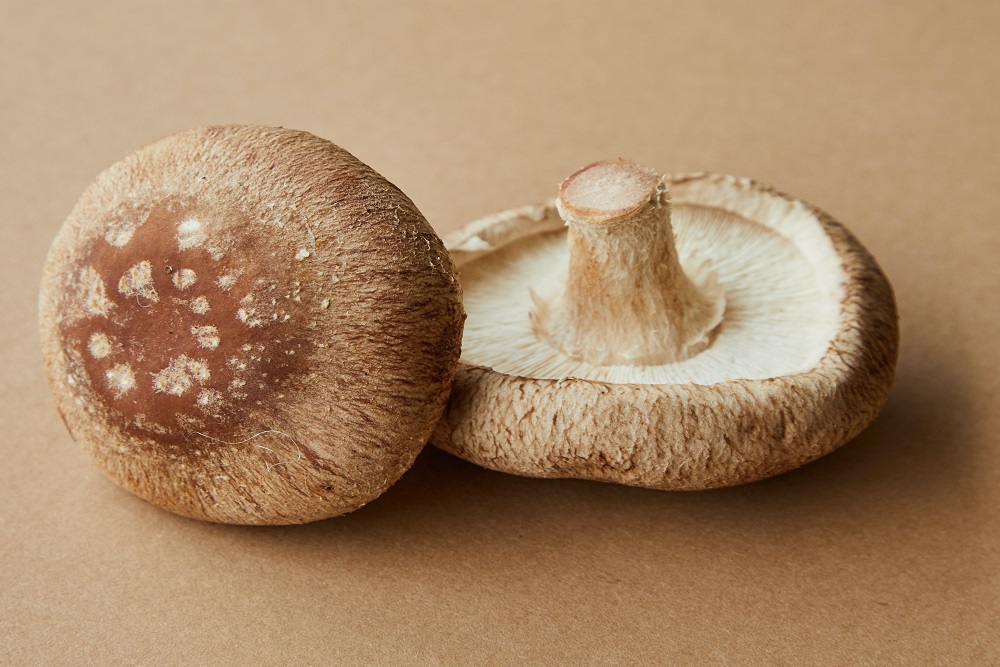Are you a vegan looking for ways to increase your protein intake? Look no further! Contrary to popular belief, there are plenty of plant-based protein sources that can help you build and maintain muscle. Whether you’re an athlete or just trying to live a healthier lifestyle, incorporating these best plant-based protein sources into your diet can benefit both your body and the environment. So let’s dive in and explore some delicious options that will satisfy your taste buds while providing essential nutrients!
Soy
Soy is a versatile and popular plant-based protein source for vegans. Soybeans contain all nine essential amino acids that the body needs to build muscle, making them an excellent choice for those following a plant-based diet.
One of the most common forms of soy is tofu. Tofu can be used in many different dishes as a meat substitute, including stir-fries, curries, and sandwiches. It has a mild taste and takes on the flavors of other ingredients it’s cooked with.
Another form of soy is tempeh, which is made by fermenting whole soybeans into a dense cake or patty. Tempeh has a nuttier flavor than tofu and works well in sandwiches or crumbled over salads.
Soy milk is another option for getting your daily dose of protein from soy. It’s often fortified with vitamins and minerals such as calcium, vitamin D, and B12 – all nutrients that are important for vegans to consume.
Some people may be allergic to soy or have concerns about its estrogen-like properties. However, studies have shown that moderate consumption of whole soy foods does not pose any health risks to most individuals.
Incorporating soy into your diet can be an easy way to boost your protein intake while following a vegan lifestyle.
Seitan
Seitan, also known as wheat meat or wheat gluten, is a popular protein source for vegans and vegetarians. It is made by mixing vital wheat gluten with water to create a dough that can be flavored and cooked in various ways.
One of the great things about seitan is its versatility. Its neutral flavor makes it an excellent substitute for meat in many dishes, from stir-fries to sandwiches. It can also be used to make vegan sausages, burgers, and even deli-style meats.
Not only is seitan high in protein (with around 25 grams per 100-gram serving), but it is also low in fat and carbohydrates. This makes it an ideal choice for those who are looking to build muscle or lose weight while following a plant-based diet.
While seitan may not be suitable for those with celiac disease or gluten sensitivity, it can be a healthy addition to the diets of many others. As always, it’s important to balance your intake of different foods to ensure you’re getting all the nutrients your body needs!
Tofu
Tofu is a versatile and affordable plant-based protein source that has been enjoyed in Asia for thousands of years. Made from soy milk, tofu has a mild flavor and a firm texture that can be used in savory dishes or sweet desserts.
One of the benefits of tofu is its high protein content, with around 10 grams per 100 grams serving. This makes it an excellent option for vegans looking to meet their daily protein needs.
Tofu can be prepared in many different ways, such as grilled, sautéed, fried or baked. It can also be blended into smoothies or used to make dairy-free sauces and dressings.
Another great thing about tofu is that it’s rich in nutrients like iron, calcium and magnesium. These minerals are important for maintaining strong bones and healthy blood circulation.
Because tofu doesn’t have much taste on its own, it’s incredibly versatile as an ingredient. You can use seasonings and marinades to give it any flavor you desire – from spicy buffalo wings to sweet chocolate mousse!
Overall , there are plenty of reasons why tofu should be included as one of your go-to plant-based protein sources if you’re vegan!
Tempeh
Tempeh is a traditional Indonesian food that has been gaining popularity in recent years as a plant-based protein source. It is made by fermenting cooked soybeans with the Rhizopus oligosporus fungus, which binds the beans together into a firm cake.
Unlike tofu, tempeh has a unique texture and nutty flavor that makes it an excellent substitute for meat in dishes like stir-fries, salads, and sandwiches. It is also rich in nutrients like protein, fiber, iron, calcium and vitamin B12.
One of the benefits of consuming tempeh compared to other sources of soy protein is its high content of antioxidants called phytoestrogens. These compounds have been shown to reduce inflammation and lower the risk of chronic diseases such as cancer and heart disease.
Another advantage of choosing tempeh over animal proteins is its sustainability. Soybeans require less land use and water than animal agriculture while producing fewer greenhouse gas emissions.
Incorporating tempeh into your diet can provide numerous health benefits while also being environmentally friendly. Try adding it to your meals for a tasty and nutritious boost!
Lentils
Lentils are a staple in many vegan kitchens and for good reason. They are not only a great source of protein, but they are also packed with essential vitamins and minerals.
One of the best things about lentils is their versatility. They can be used in soups, stews, salads, and even as a meat substitute in burgers or tacos. Plus, lentils come in a variety of colors including green, brown and red.
In addition to being high in protein (1 cup cooked has around 18 grams), lentils are also an excellent source of fiber which helps keep you feeling full longer. They also contain important nutrients like iron, folate and potassium.
Another benefit of using lentils as a plant-based protein source is that they are very affordable and easy to find at most grocery stores. So whether you’re looking to add more protein to your diet or just want to switch up your meal routine, give lentils a try!
Beans
Beans are a versatile and affordable source of plant-based protein that can be added to many vegan dishes. There are various types of beans available, including black beans, kidney beans, chickpeas, navy beans, lentils and more.
One cup of cooked black beans contains 15 grams of protein along with other essential nutrients like fiber, iron and folate. Kidney beans have similar amounts of protein in one cup as well as manganese and potassium which help regulate blood pressure.
Chickpeas are another popular bean variety that is high in both protein and fiber. One cup cooked chickpeas contain around 14 grams of proteins along with important minerals such as magnesium, phosphorus and zinc.
Lentils also pack a punch when it comes to plant-based proteins. One cup cooked lentils has about 18 grams of proteins plus several vitamins including vitamin B6 for energy production.
Adding different varieties of beans to your diet is an easy way to increase your daily intake of plant-based protein while enjoying the many health benefits they offer. Try incorporating them into soups or stews or even make homemade hummus for a delicious snack!
Chickpeas
Chickpeas, also known as garbanzo beans, are a versatile and nutritious source of plant-based protein for vegans. These small legumes are rich in fiber, iron, folate, phosphorus and other essential nutrients that support overall health.
One popular way to enjoy chickpeas is by making hummus – a creamy dip made from mashed chickpeas blended with tahini paste, olive oil and lemon juice. Hummus can be served as an appetizer or added to sandwiches and wraps for extra flavor and nutrition.
Roasted chickpeas make a crunchy snack that’s perfect for munching on the go. Simply toss cooked chickpeas with your favorite seasonings like garlic powder or smoked paprika before baking in the oven until crispy.
Chickpea salad makes a refreshing lunch option. Combine cooked chickpeas with chopped veggies like cucumber, cherry tomatoes and red onion before dressing with a simple vinaigrette made from olive oil and apple cider vinegar.
For something heartier, try adding cooked chickpeas to soups or stews for extra protein and fiber. Chickpea curry is another delicious dish that’s easy to prepare – simply sauté onions, garlic and ginger in coconut oil before adding canned tomatoes, spices like cumin and turmeric along with cooked chickpeas.
Incorporating more chickpeas into your diet is an easy way to boost your intake of plant-based protein while also reaping numerous health benefits associated with this nutrient-dense legume.
Quinoa
Quinoa is a gluten-free, high-protein grain that has been gaining popularity among vegans and non-vegans alike. It is rich in essential amino acids, making it a complete protein source. Quinoa contains all nine essential amino acids which makes it an excellent addition to any vegan diet.
One of the great things about quinoa is its versatility in cooking. It can be used as a base for salads or served warm as a side dish with roasted vegetables or tofu. You can also use quinoa flour to make baked goods like muffins or pancakes.
Another amazing benefit of quinoa is its impressive nutrient profile. It contains iron, magnesium, phosphorus and fiber which are vital nutrients for overall health and well-being.
When buying quinoa, look for organic varieties whenever possible to avoid exposure to harmful chemicals used in conventional farming practices. Rinse the quinoa before cooking to remove any bitter residue from the outer layer of seeds.
Incorporating this superfood into your diet will provide you with numerous health benefits while also satisfying your taste buds!
Nutritional Yeast
Nutritional yeast is a type of deactivated yeast that has become increasingly popular among vegans and vegetarians.
It is commonly due to its unique nutritional profile and cheesy, nutty flavor.
It is a complete protein source, meaning it contains all nine essential amino acids necessary for human health.
Not only does nutritional yeast provide high-quality protein, but it is also rich in B vitamins.
Which includes folate, thiamin, riboflavin, niacin and vitamin B12 which are often lacking in plant-based diets.
This makes it an excellent addition to any vegan or vegetarian diet.
One of the best things about nutritional yeast is its versatility – you can sprinkle it on popcorn or salads.
It provides for an extra boost of flavor or mix into soups and sauces as a natural thickener.
Nutritional yeast can even be used as a vegan substitute for cheese in recipes like macaroni and cheese or sprinkled on top of pizza.
It’s important to note that not all nutritional yeasts are fortified with vitamin B12 so check the label.
Even before purchasing, check if this nutrient is important to you.
Incorporating nutritional yeast into your diet is an easy way to increase your intake of key nutrients while adding delicious flavor to your meals!
Conclusion
There are many plant-based protein sources available for vegans.
By incorporating a variety of these options into your diet, you can ensure that you are meeting your daily protein needs.
You can also be sure of your diet without relying on animal products.
Soy, seitan, tofu, tempeh, lentils, beans, chickpeas, quinoa and nutritional yeast are all great choices for those following vegan diet.
These options not only provide ample amounts of protein but also come with additional health benefits.
The benefits such as fiber and essential vitamins and minerals.
It is important to note that while plant-based proteins may sometimes take longer to digest.
It could also require more planning in meal preparation than their animal counterparts.
They offer many advantages including better heart health and lower risk of certain types of cancer.
So the next time someone asks how vegans get their protein – share this blog post with them!








